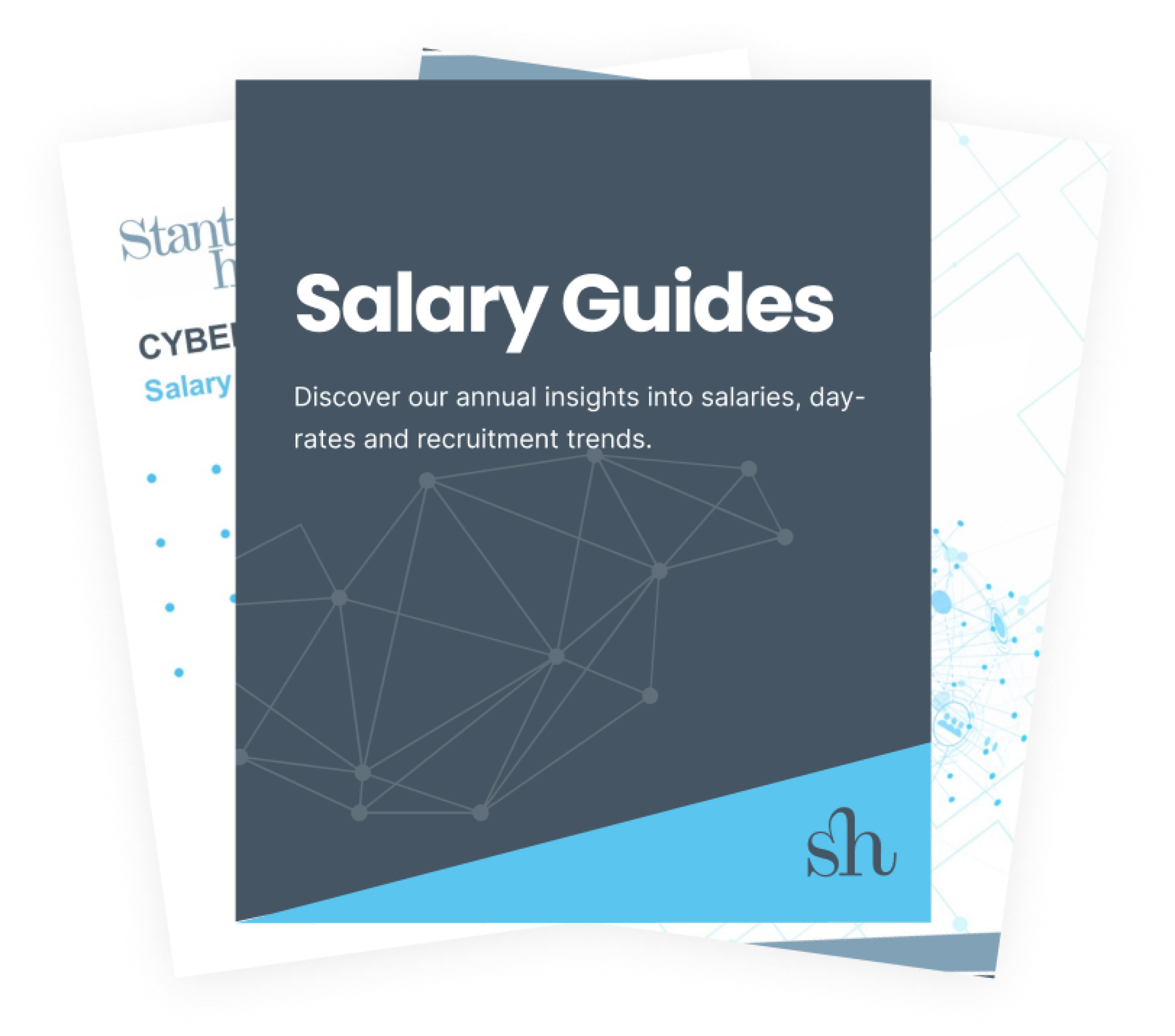
Celebrating World Menopause Day: Empowering Women in the Workplace
World Menopause Day, observed on October 18th every year, is a day dedicated to raising awareness about menopause and its impact on women's health and well-being. At Stanton House, we believe in creating inclusive and supportive workplaces that empower all individuals, regardless of their age or gender.
In this blog, we will explore the significance of World Menopause Day and how organisations can play a pivotal role in supporting women experiencing this natural life transition.
Understanding menopause
Menopause is a natural biological process that marks the end of a woman's reproductive years. It typically occurs between the ages of 45 and 55, with symptoms that can last for several years. While menopause is a natural phase in a woman's life, its effects can significantly impact various aspects of life, including work performance and overall well-being. Some of the symptoms of menopause include:
- Period changes
- Hot flushes
- Night sweats
- Mood changes
- Fatigue
- Anxiety
- Brain fog
- Poor sleep
- Migraines
- Depression
A striking and terribly sad statistic is that 1 in 10 women have quit their jobs due to menopause symptoms. And shockingly, menopause is an ‘opt-in’ module for GP’s and is not a compulsory module. For that reason, it is often misdiagnosed as depression.
So, what can employers be doing to support women in the workplace?
Supporting women in the workplace
1. Open Communication: Encourage open and transparent communication about menopause in the workplace. Create a safe space where women can discuss their experiences and concerns without fear of stigma or discrimination.
2. Flexible Work Arrangements: Recognise that menopausal symptoms, such as hot flashes and fatigue, can affect work performance. Offer flexible work arrangements, such as adjusted hours or remote work options, to accommodate the needs of women going through menopause.
3. Education and Awareness: Provide educational resources about menopause to both employees and managers. Training programs and workshops can help raise awareness and dispel myths surrounding this natural life transition.
4. Supportive Policies: Develop inclusive policies that address the specific needs of menopausal women. This can include policies related to sick leave, temperature control in the workplace, and access to medical advice or counselling.
5. Employee Assistance Programs (EAPs): Offer EAPs that provide access to mental health support and counselling services. Menopause can sometimes lead to emotional and psychological challenges, and having these resources available can be invaluable.
6. Wellness Initiatives: Promote wellness programs that focus on physical and mental health. Encourage regular exercise, stress management techniques, and healthy eating, all of which can help alleviate menopausal symptoms.
7. Inclusive Culture: Foster an inclusive workplace culture where menopause is treated with respect and understanding. This can be achieved through diversity and inclusion initiatives and leadership training.
Taking action at Stanton House
At Stanton House, we are committed to promoting diversity and inclusion in the workplace.
On World Menopause Day, we reaffirm our dedication to creating a supportive environment for women experiencing menopause.
We have signed up to the Wellbeing of Women - Menopause Workplace Pledge.
We have committed to:
- Recognising that the menopause can be an issue in the workplace and women need support
- Talking openly, positively and respectfully about the menopause
- Actively supporting and informing our employees affected by the menopause
How does this commitment manifest at Stanton House?
The Stanton House Empathy Series
A couple of years ago we launched ‘The Stanton House Empathy Series’, an internal initiative to bring awareness to a wide range of topics including menopause, caring for dependants, anxiety, men’s mental health, chronic illness, neurodiversity and structural racism to name just a few!
In fact, the catalyst for the Stanton House Empathy Series was a request from one of our leadership team to support a colleague who was experiencing severe menopausal symptoms; so extreme that they were impacting her mental health and ability to work. This led to an internal debate on the meaning of inclusion, and what it means to bring your best self to work, especially at a time when work and life boundaries continue to blur.
The consensus of this energetic debate was that no longer can we pretend that work and life are separate. What happens in our day-to-day lives is integral to how we perform and act in the workplace. We’ve had informative sessions sharing research and stats, as well as lived experiences of some of our staff members.
The goal of this initiative is to increase our empathy for our colleagues and to fight against the taboo of discussing topics such as women’s health in the workplace.
I shared my own experiences in this session…without going into all the details…but brain fog is a real thing and does have an impact on your day-to-day!! Not the easiest topic to discuss with your colleagues but the messages of support post the session made the pre-session nerves worthwhile.
Menopause is something that is now spoken about much more at Stanton House which is great to see.
I would encourage anyone who needs support to reach out to friends, colleagues or Doctors and don't give up until you get a solution for you. We are hoping to see changes from the Labour government on flexibe workng over the coming months so hopefully that will make it easier for women to get the support they need.
Launch your own initiative, download our insight paper
To learn more about our Empathy Series and how you too can create and launch your own internal initiative - download your copy of our insight paper ‘Why Empathy Matters In The World of Work’ at the bottom of this blog.
If you are interested in using our concept, content and materials, please reach out to me. I would be so happy to share our materials with you.
Useful resources
-
WHO Women's Health and Development Program: World Health Organisation’s - Women's Health and Development Program addresses various aspects of women's health, including menopause.
-
International Menopause Society (IMS): IMS provides global information and guidelines on menopause and postmenopausal health.
-
UN Women - Gender Equality in the Workplace: United Nations Women promotes gender equality and may offer resources on supporting women through life transitions like menopause.UK Government Equalities Office - Menopause Guidance: This resource offers guidance for UK employers on supporting employees through menopause.
-
Menopause at Work (UK): This organisation offers training and resources for UK employers to create menopause-friendly workplaces.
-
Menopause Matters (UK): Menopause Matters provides information, articles, and forums to help women and employers navigate the menopause transition.
-
The North American Menopause Society (NAMS): NAMS offers a wealth of information, including educational materials, research, and guidelines related to menopause.
-
Office on Women's Health - U.S. Department of Health and Human Services: This resource provides information on menopause and its impact on women's health.


















